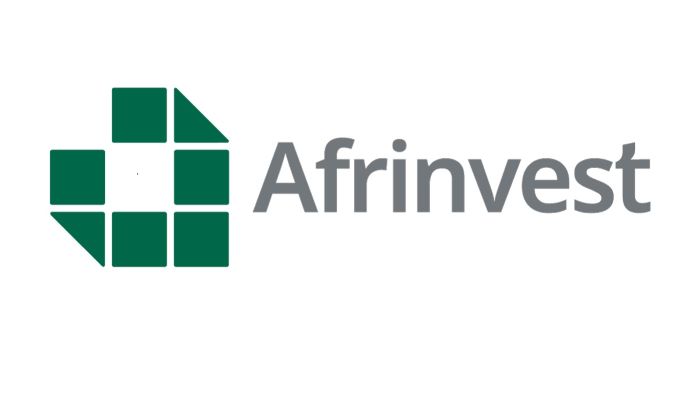Afrinvest at 30: 20th Banking Sector Report Maps ‘ACT-BOLD’ Path to Nigeria’s $1trn Economy

Afrinvest (West Africa) has marked its 30th anniversary with the release of its 20th Nigerian Banking Sector Report (BSR)—a flagship research blueprint positioning seven high-impact sectors as accelerators of Nigeria’s $1 trillion economy aspiration. The firm frames the moment as both a milestone and a mandate: think differently, act boldly, collaborate relentlessly—particularly across Agriculture, Creatives, Tourism & Hospitality, Banking & Finance, Oil & Gas, Logistics, and Domestic Manufacturing.
BRANDECONOMY unpacks what this means for banks, policymakers, investors and operators—and how to translate a bold theme into bankable execution.
What’s New — and Why It Matters
- 30 years, 20 editions: A rare continuity of sector intelligence just as Nigeria pursues a step-change in growth.
- From policy to playbook: The 20th Banking Report pushes execution—not just diagnosis—urging reforms that lift productivity, competitiveness and capital formation.
- Seven-sector focus: A deliberate portfolio approach to growth: diversify exports, deepen value chains, lower logistics and energy costs, and tighten the feedback loop between finance and the real economy.
The $1trn Question: Where the Growth Will Actually Come From
1) Agriculture (move from yields to value)
- Levers: large-scale irrigation, input financing at scale, storage/cold-chain, offtake contracts, agro-processing clusters.
- Banking angle: warehouse-receipt lending, blended-finance guarantees, index insurance.
- KPI to watch: post-harvest loss ↓, agro-exports ↑, formal credit to agri MSMEs ↑.
2) Creatives (IP to FX)
- Levers: IP protection, performance-royalty rails, export-ready content funds, studio infrastructure, events logistics.
- Banking angle: receivables financing on streaming contracts, ticketing escrow, rights securitisation.
- KPI: export receipts from film/music/gaming; formalisation of creator earnings.
3) Tourism & Hospitality (experience + infrastructure)
- Levers: visa facilitation, route development, destination standards, safety, payments acceptance.
- Banking angle: project finance for mid-market hotels, PPPs for sites, card/acquirer economics.
- KPI: international arrivals, average spend per visitor, occupancy rates.
4) Banking & Finance (intermediation that matters)
- Levers: risk-based capital and supervision, market-clearing FX architecture, active NPL resolution, deeper local-currency debt markets.
- Banking angle: shift from balance-sheet bloat to risk-priced lending, digital origination at scale, and capital efficiency.
- KPI: private-sector credit/GDP ↑, cost of risk ↓, NPL coverage ↑.
5) Oil & Gas (cashflow, not just capacity)
- Levers: reliable feedstock, pipeline security, gas commercialisation, transparent pricing, competitive mid/downstream access.
- Banking angle: reserve-based lending, gas-to-industry finance, ESG-aligned bonds for flare-out projects.
- KPI: gas utilisation ↑, refined products availability ↑, import bill ↓.
6) Logistics (cost to serve must fall)
- Levers: corridor rehab, ports efficiency, rail revival, digital freight platforms, bonded warehousing.
- Banking angle: equipment leasing, asset-backed finance, working-capital revolvers for 3PLs.
- KPI: truck-turnaround time ↓, port dwell time ↓, logistics cost as % of sales ↓.
7) Domestic Manufacturing (scale + power + skills)
- Levers: captive power/CNG, local inputs, standards, export incentives, cluster specialisation.
- Banking angle: term loans tied to energy efficiency and FX-saving inputs; supplier-finance programs.
- KPI: capacity utilisation ↑, manufactured exports ↑, import substitution in priority SKUs ↑.
Banking Sector Implications — The Playbook Boards Should Run Now
- Capital & Structure:
- Optimise capital for risk-weighted growth (not just asset size).
- Blend Tier II and hybrid capital with equity to fund real-sector pipelines.
- Optimise capital for risk-weighted growth (not just asset size).
- FX & Trade Finance:
- Prioritise market-based FX access, hedging products, and USD working-capital for exporters.
- Expand supply-chain finance to anchor local content in manufacturing and oil & gas.
- Prioritise market-based FX access, hedging products, and USD working-capital for exporters.
- Credit Infrastructure:
- Industrialise use of credit registries, movable-collateral and receivables.
- Scale performance-risk guarantees with DFIs to crowd in private credit.
- Industrialise use of credit registries, movable-collateral and receivables.
- Digital Origination & Risk:
- Build scoring models for thin-file MSMEs using payments, telco, and platform data.
- Automate collections; deploy AI early-warning on asset quality.
- Build scoring models for thin-file MSMEs using payments, telco, and platform data.
- Asset Quality & Recovery:
- Dedicated NPL work-out desks, syndicated restructurings, and secondary markets for distressed assets.
- Link loan pricing to sector-specific cashflow volatilities.
- Dedicated NPL work-out desks, syndicated restructurings, and secondary markets for distressed assets.
- ESG & Transition Finance:
- Fund CNG/renewables for fleets and factories; monetise carbon and energy savings.
- Position sustainability as a cost-of-funds advantage, not a burden.
- Fund CNG/renewables for fleets and factories; monetise carbon and energy savings.
Investor Lens — Where Public & Private Capital Should Tilt
- Core debt: infrastructure, logistics corridors, captive power, working capital for export earners.
- Growth equity: agro-processing, creator-economy platforms, logistics tech, mid-market hospitality.
- Blended finance: risk-sharing for agricultural value chains, gas utilisation, and manufacturing clusters.
- Capital markets: more Naira-denominated issuances to reduce FX mismatch, with index inclusion as a liquidity magnet.
Execution Risks (and How to De-Risk Them)
- Policy volatility: Lock reforms into transparent rules (licensing, tariffs, access) with time-bound transitions.
- FX fragility: Diversify FX sources via export pipelines; expand hedging access for SMEs.
- Security & logistics gaps: Corridor-level task forces; data-driven policing of freight routes.
- Capacity constraints: Skills partnerships (banks + polytechnics + DFIs) aligned to the seven sectors.
90-Day Action List (Boards, Excos, Policymakers)
Banks & DFIs
- Publish a sector credit thesis aligned to the seven pillars.
- Stand up a $/₦ blended export window for qualified manufacturers and agro-processors.
- Launch receivables/warehouse-receipt products with risk-sharing.
- Set SLA-based loan processing for MSME pipelines (≤10 working days).
Government & Regulators
- Fast-track open-access logistics rules, fair pricing in mid/downstream, and credit infrastructure enforcement.
- Prioritise visa & route facilitation for tourism and creators.
- Publish quarterly scorecards on sector KPIs to anchor accountability.
Corporate Operators
- Lock energy cost with captive power/CNG; digitise supply chains.
- Build export-ready compliance (standards, documentation, payments).
- Use supplier finance to stabilise working capital and scale.
BRANDECONOMY Verdict
Afrinvest’s 20th BSR arrives at the right time—and pushes the right levers. The path to a $1trn Nigerian economy won’t be theory-led; it will be pipeline-led: capital disciplined by risk, policy pinned to execution, and banks measured by how much productive credit they deliver into the seven engines of growth. ACT-BOLD is not a slogan; it is a scorecard.












